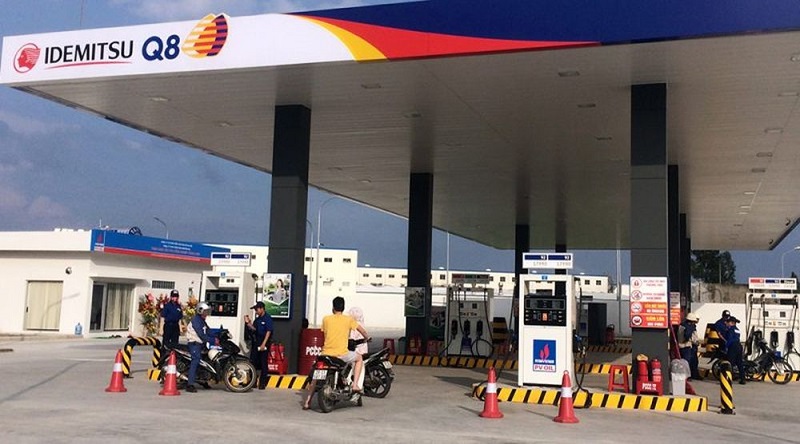Vietnam considers allowing foreign ownership in petroleum firms
Experts believed that allowing foreign ownership at local petroleum firms will result in better services and boost competitiveness.
Vietnam contemplates the permission of foreign ownership by maximum 34% in domestic petroleum companies, local media cited a government decree.
A filling station of Idemitsu Q8 in Vietnam. Photo: Tuoitrethudo |
Companies specializing in running business and producing petroleum products are eligible to sell a maximum 34% stake to foreign investors with the approval by the Ministry of Industry and Trade (MOIT), according to a draft decree that is supposed to supplement Decree 83/2014/ND-CP dated September 3, 2014 on petroleum trading.
Under the MOIT’s draft decree, allowing foreign stakes in local petroleum companies aims to boost fair business environment for state-owned enterprises (SOEs) and private ones, to be in line with the Party and State’s policies on facilitating the private sector.
In reality, Vietnam made no commitments to opening the petroleum retail market to foreign investors when the country joined the World Trade Organization (WTO) in 2007 and signed more than 10 free trade agreements (FTAs).
However, Vietnam allows foreign stakes in oil refineries to distribute their products.
Nghi Son Refinery and Petrochemical LLC allows two foreign companies to hold a total of 74.9% stake in the company.
Meanwhile, Japan’s JX Nippon Oil & Energy now holds an 8% stake in Vietnam National Petroleum Group (Petrolimex) since 2016.
In the petrol retail market, Japan’s Idemitsu Q8 is the only foreign-owned petrol chain in Vietnam with four outlets since entering the market in 2017. It targets to have 10 by 2020.
Inevitable move
This is an inevitable move showing the market openness even in petroleum trading which has been kept totally under the state control, the Thanh Nien newspaper quoted an official at Petrolimex as saying.
He added that the number of wholesale petroleum trading firms has reached more than 30 from 7 before.
The foreign ownership is good for the local petroleum market and customers will benifit as it helps boost competitiveness and improve service standards, said Nguyen Tuan Quynh, vice head of the Ho Chi Minh City Young Entrepreneurs Association.
Dr. Dinh Trong Thinh at the Academy of Finance strongly supports the foreign ownership in petroleum firms, saying that having the participation of different economic sectors in the petroleum market is a must in response to the market demand and customers’ requirements.
In response to concerns over energy security, Nguyen Tuan Quynh said the move will cause no harm to the country’s energy security because the state still holds the controlling stake and controls the petroleum market.
Importantly, the participation of foreign investors enables the government to adjust market-based policies more reasonably and effectively, Dr. Dinh Trong Thinh noted.











